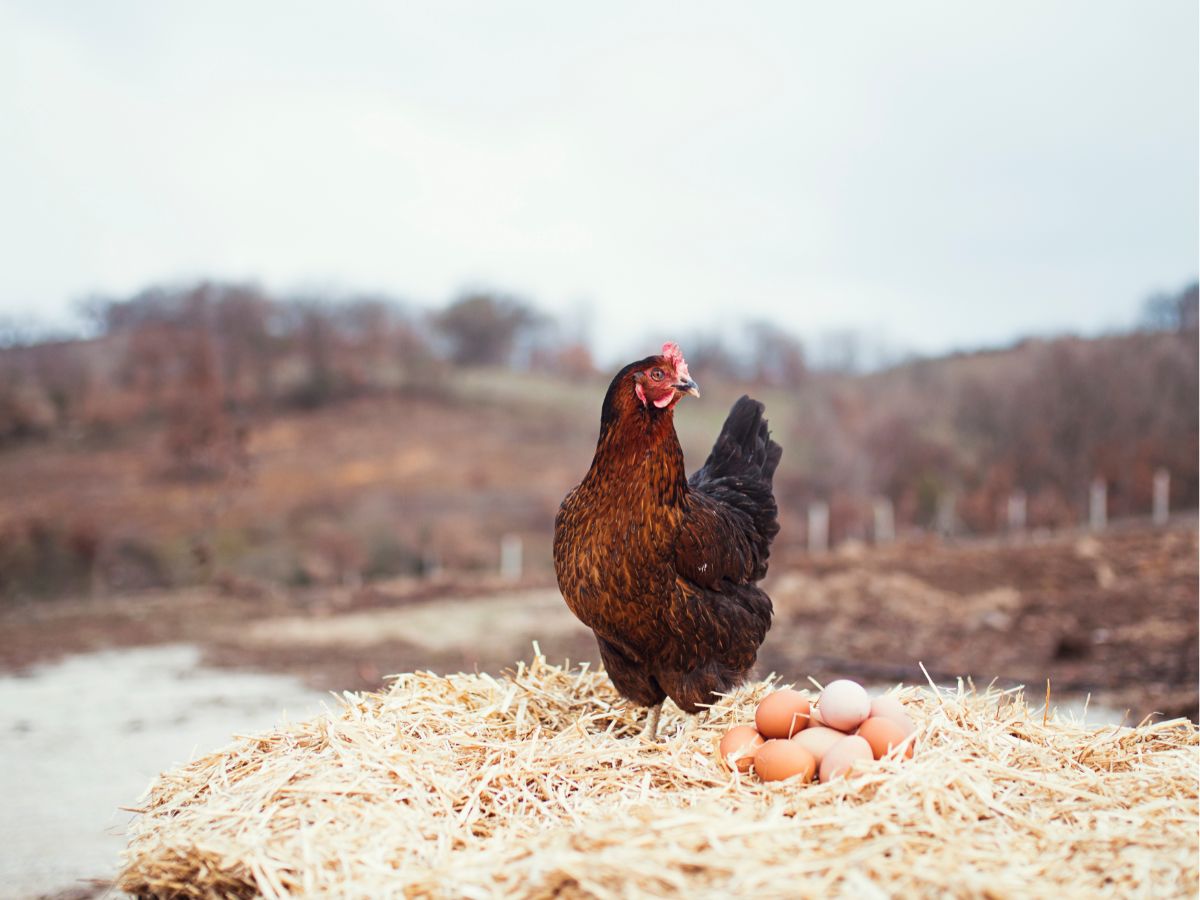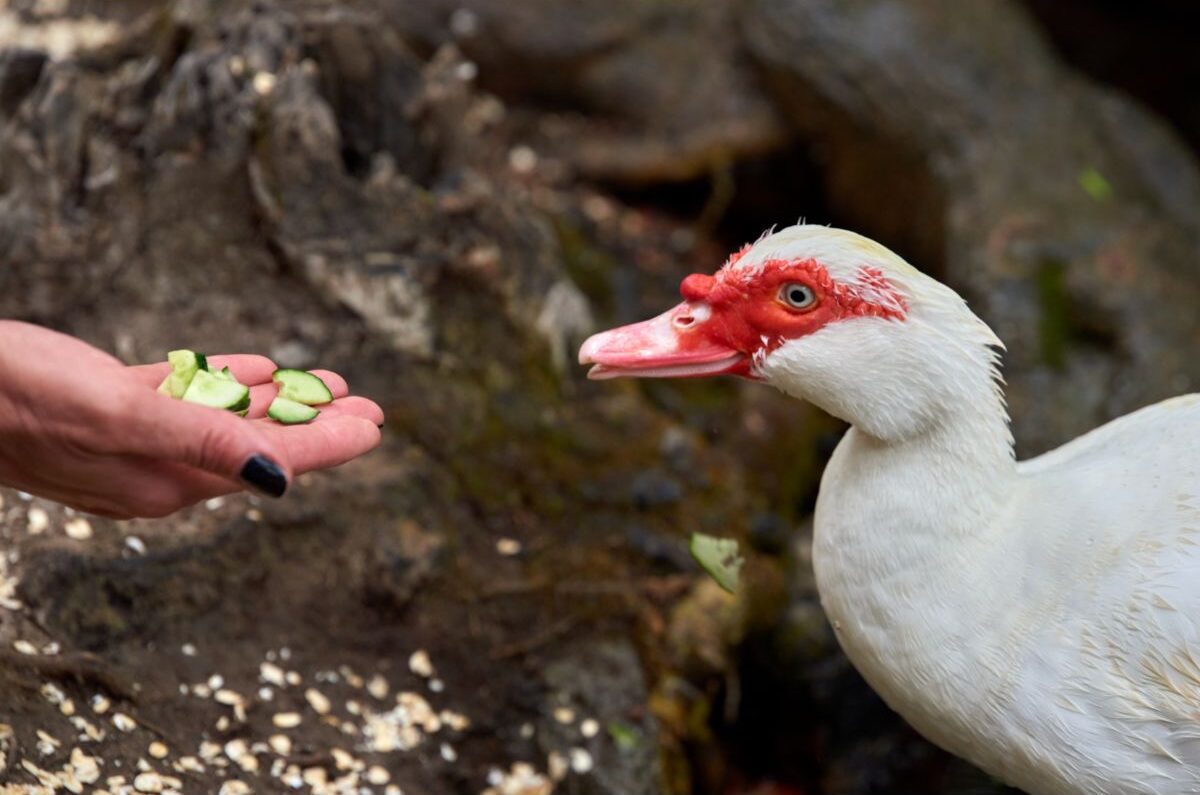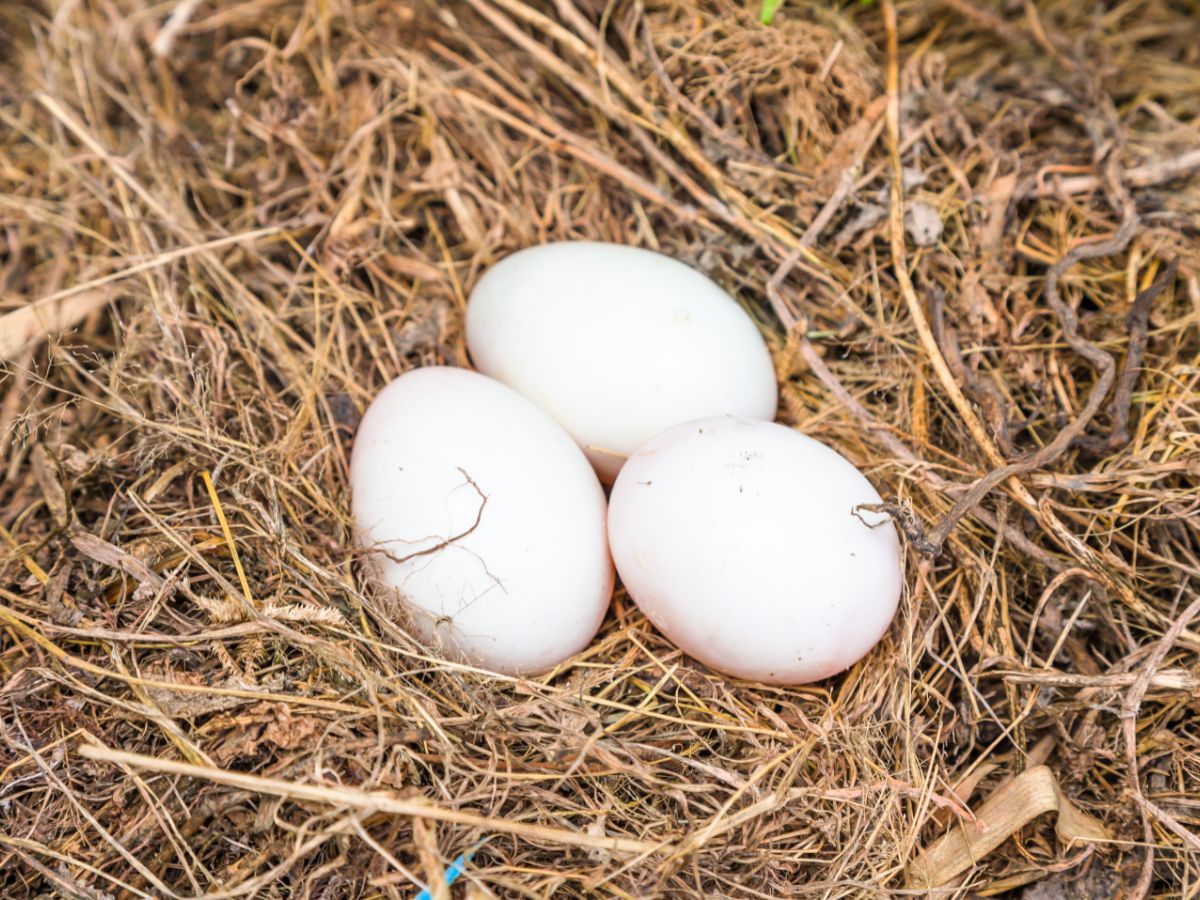If you want to keep chickens, you should know there is a slight learning curve to keeping them happy and healthy. It can be a bit alarming when one of your chickens falls ill, and you don’t know why. One of the most common issues most people who keep chickens will face is why do chickens stop laying eggs?
Hens stop laying eggs because of stress, poor diet, molt, age, sickness, and not enough access to daylight. Other reasons include a broody hen, introducing new members to the flock, or moving the flock. Some reasons can be fixed with diet, others are natural responses, so all they need is some time.
When chickens stop laying eggs, you could solve the problem by making a few minor changes to their diet or living arrangements, or they stop laying eggs as a natural response. To learn more about this, we researched and got a lot of helpful information on why chickens stop laying eggs and how to help them get back on track.
Contents
Why Do Chickens Stop Laying Eggs?
Whether you are a chicken farmer or keep a few chickens on your property for eggs or companionship, you want them to be healthy. One of the most common issues you will face is when your chickens stop laying eggs.
Ideally, a chicken lays one egg every 24 hours. Many factors can influence and disrupt their egg production. We will examine why chickens stop laying eggs and what you can do about it.
Incorrect Diet
For a chicken to lay eggs consistently and to keep them healthy, they require 38 specific nutrients in specific amounts. When you under or overfeed your chickens, it will disrupt their egg-laying ability.
Overfeeding them means giving your laying chickens too many treats. The treats dilute the nutrients in their complete layer feed, meaning they don’t get as much of the four grams of calcium (per day) and other nutrients they need to produce eggs.
Underfeeding your laying chickens can happen when you give less complete layer feed and more treats or give your chickens the wrong kind of feed. They won’t get the nutrients they require to stay healthy or to lay eggs.
Complete layer feed is designed to give your chickens all the correct nutrients in the correct amounts they need to keep laying eggs consistently and stay healthy. The general idea is to stick to the 90/10 rule. The chickens should get 90% complete layer feed and around 10% treats.
Molt And Stress
All chickens start to molt (losing and regrowing feathers) when they are around 1 ½ years old. It usually happens during fall; because most of their energy and nutrients are directed at regrowing their feathers, they will stop laying eggs until they have a full set of new feathers.
They will molt once a year after their first molt at 18 months old. As soon as your chickens start molting, switching to a higher protein feed would be best to help them molt easier and regrow their feathers quicker. You can change back to the normal high calcium complete layer feed after they have completed their molting phase.
They Aren’t Getting Enough Daylight
When chickens don’t get enough daylight, their egg-laying production will be affected. Hens need 13-16 hours of daylight each day to lay eggs. It can become a problem during the fall and winter as the daylight is cut to around 8-9 hours a day.
It’s not enough daylight, and it will reduce the number of eggs the hens can lay. One way to fix this is to use artificial lights in their coop as soon as the sun goes down. It will encourage healthy egg production. You can set the artificial lights on a timer, so it goes off as soon as the sun goes down, stays on the extra needed hours, and then turns back off.
The Chicken’s Age
As chickens get older, they will lay fewer eggs than they did when they were younger. Some chickens, like the Rhode Island Red, are famed for producing around 200 eggs on average per year per chicken but will start laying fewer legs by their third year as they age.
So if you find that some chickens lay fewer eggs after three or four years, it may be because they are getting old. That’s not bad; they can be useful as nesters, help control weeds and bugs, and make great motherly role models for the younger hens. Keep an eye on them so the younger hens don’t bully them.
Sickness
When a chicken is sick, it can affect the normal number of eggs it lays. If you find that your hens look a little sickly, it’s important to isolate them so they don’t make the rest of the flock sick. Some of the most common health issues hens can get include:
Parasites
Parasites are things like lice, mites, and worms. You will find that your hens will keep scratching, and their comb will go pale. You can treat this by spraying all your chickens and the coop with a poultry cleaner. That should kill the parasites and get your girls back to health.
Being Egg-Bound
When a hen is egg-bound, one of her eggs is stuck in her oviduct. If you see your chicken stops laying eggs for a day and has not eaten as much as usual, won’t drink as much water, and keeps sitting in a pigeon pose, then it may be egg-bound.
You will need to get your hen to the nearest vet as soon as possible because a stuck egg can lead to the hen’s death if it is not passed within 24-24 hours.
Moving The Flock Or Adding New Members
Chickens thrive on routine, so when their routine is changed, they will start to stress, and stressed hens lay fewer eggs than content and happy hens. Two main factors that affect them the most are when their coop is moved to a different location and when you add a new hen to the flock.
If you are moving the coop location, give your girls a few days to settle in, and they should be back to laying eggs in no time. If you are adding new members to the flock, it will take a few days for the ladies to sort out the pecking order and establish who is who, but regular egg production should resume after a few days.
Conclusion
Having chickens in your care can be overwhelming, especially if something goes wrong. Luckily there are a few reasons and solutions to help hens when they stop laying eggs. Hens can stop laying eggs due to stress, age, and other environmental issues, but given the right remedy, they will be back laying eggs in no time. Remember to take a sick chicken to the vet as soon as possible.




